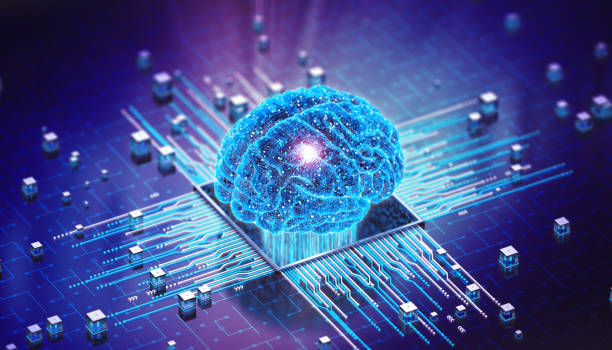Quantum Artificial Intelligence (QAI) utilizes quantum computing to generate machine learning algorithms in the delivery of artificial intelligence (AI) products.
These can include machine learning algorithms, neural networks and large language models, assisting humans to achieve results beyond classical computers.
Research into quantum computing and AI has been continuous for decades: however, until only relatively recently, these distinct and burgeoning technologies were perhaps widely considered to be in their nascent stages of development.
Artificial general intelligence systems can be advanced by QAI in their potential to think and understand like humans, resulting in new and compelling discoveries in diverse sectors such as computer vision, language processing and robotics.
This article provides a primer on this critical technology and its exciting potential for humankind.
Quantum AI Impact on Technology and Beyond

Recent advancements have brought AI into the mainstream with the release of advanced automated text and graphic generators.
The early 2020s saw a tremendous spike in interest and engagement with consumer-facing AI tools and seemingly endless integrations into enterprise products, ranging from finance to pharmaceuticals.
While the promise of AI capable of operating at a capacity similar to (or exceeding) human intelligence appears close, current technologies are struggling to overcome software and hardware limitations.
The exciting potential of AI remains hampered by the extreme energy consumption, long processing times and demanding computing required by current AI systems, reducing large-scale viability.
Although modern models stretch the limitations of traditional computers, applying quantum computing to AI development is anticipated to drive each of these technologies into an unprecedented epoch.
Just as next-generation AI challenges the hard limits of classical computers, the paradigm-shifting abilities of quantum computing present a powerful path forward for AI.
For countless industries—including pharmaceutical research, climate science, data science, weather modeling, finance and even the arts—the emergence of quantum AI predicts an undeniable realization of science’s most advanced and experimental research technologies.
Integrating quantum computing in AI systems in the future could stimulate unprecedented paradigm shifts in areas encompassing computing power, algorithm efficiency and problem-solving capabilities.
Despite their complexities, QAI may prove to be critical in overcoming humanity’s most challenging obstacles.
Understanding AI
AI technology enables technical systems to perceive their environment, handle what they perceive, unravel complex problems and take actions to accomplish particular goals.
In other words, computers can emulate human intellect and our ability to solve complex problems, whether alone or in collaboration with other technologies.
AI can execute assignments otherwise requiring human influence.
AI develops algorithms to learn from data and make decisions based on that knowledge built using programming languages: however, they also necessitate expertise in mathematics, statistics and computer science to function and design results on their own.
Common examples of useful AI include digital assistants, GPS navigation, autonomous vehicles, generative AI art and writing tools.
Quantum AI’s Potential and Influence
In addition to the multifarious potential benefits of applied AI, QAI has emerged as a potentially exponential tool to augment numerous processes.
As a unique technology, the overall consequence that AI can have on our lives is constantly being examined: however, it is developing rapidly.
Where quantum computers process enormous datasets, any problem requiring large-scale data processing could radically benefit.
For example, QAI could reduce the learning times of large language models, facilitating the near-instantaneous composition of new, highly specialized AI assistants to augment any number of complex, technical or experimental subjects. Outside of these everyday AI tools, QAI is predicted to revolutionize the following key fields:
1. Medicine
QAI could expedite established training processes within medicine, supplying rapid diagnostics models.
With significantly more processing power than traditional computers, QAI algorithms could analyze vast amounts of medical data in real time, resulting in more accurate and efficient diagnoses.
This could radically enhance decision-making in medical diagnoses, such as using patient medical history to determine the optimal treatment procedures.
2. Finance
Many major brokerages use automation to optimize trading portfolios; however, AI becomes less capable as trading strategies grow in complexity.
The ability of QAI to identify patterns in (and make predictions from) large complex datasets could potentially lead to breakthrough AI-enabled trading platforms that can replicate the most successful portfolios, dynamically adjusting investments to maximize profits.
Moreover, QAI’s influence on the most advanced cybersecurity protocols of today (such as cryptography and cryptocurrency) will result in a new generation of next-gen cryptographic systems, currently in development.
3. Climate
An application where quantum computers are particularly valuable is modeling the exceptionally complex natural world.
As such, processes like weather prediction and forecasting may be greatly improved by QAI.
Furthermore, QAI could prove to be a pivotal tool in the advancement of climate science from testing the efficacy of carbon reduction initiatives to the development of experimental green technologies.
Final Notes
The fusion of quantum computing and artificial intelligence (QAI) stands poised to revolutionize countless industries and reshape the technological landscape.
QAI’s potential to accelerate computation, process vast datasets, and drive innovation holds promise across diverse sectors, from medicine and finance to climate science and beyond.
As research and development continue to advance, the realization of QAI’s transformative capabilities offers new avenues for addressing humanity’s most pressing challenges and unlocking unprecedented opportunities for progress.




